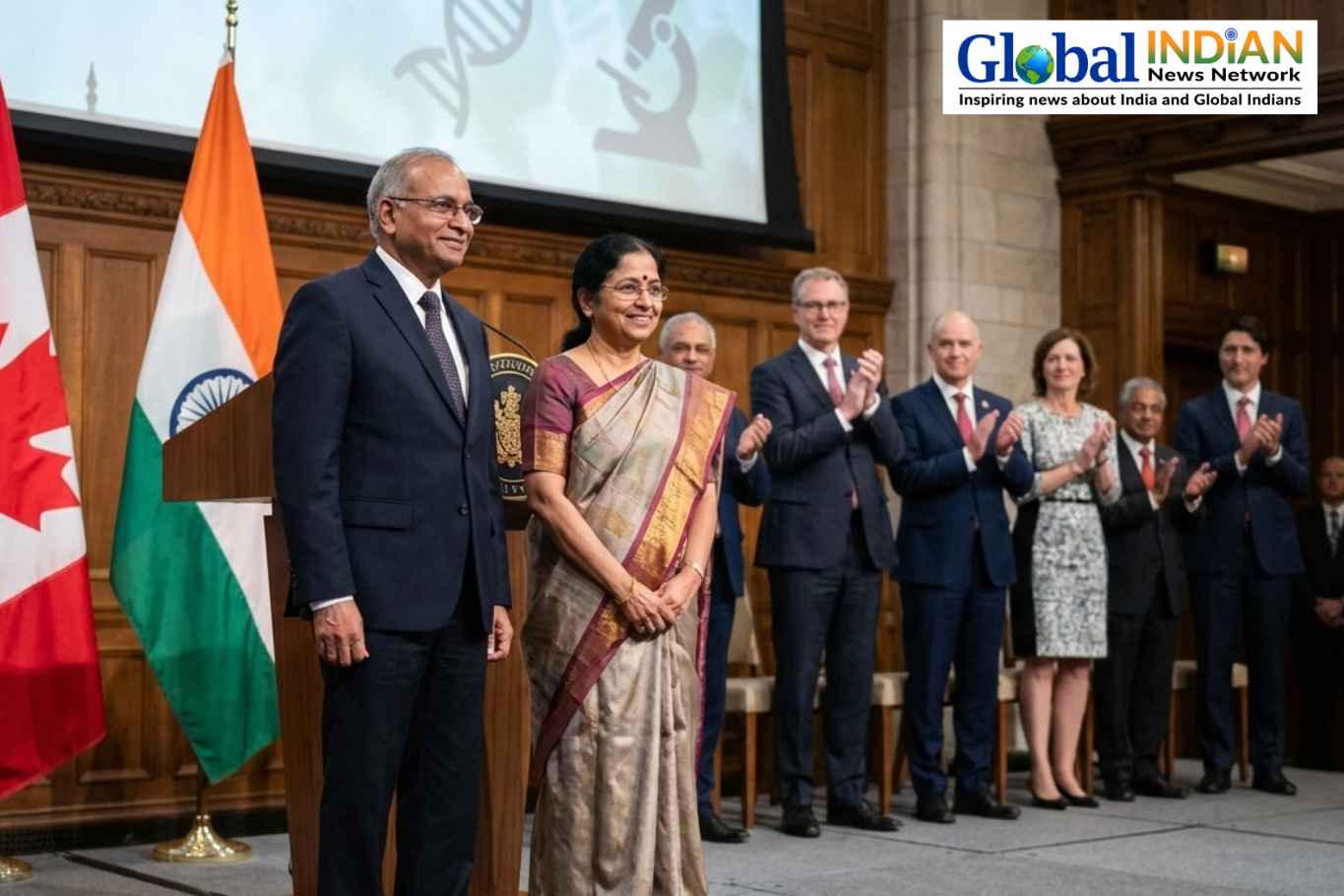
As the United Kingdom nears its general election on 4 July 2024, the Labour Party is poised for victory under the banner of “It’s time for change.” This pivotal moment underscores the significant influence of Indian-origin Members of Parliament (MPs) in shaping the nation’s political landscape. The rising prominence of Indian-origin politicians reflects not only increased political engagement but also the growing success and socioeconomic status of British Indians. Data indicates that Indian households lead in high-income brackets, with a substantial contribution to the UK’s GDP, highlighting their economic and potential political sway.
A notable milestone in this trend was Rishi Sunak’s appointment as the UK’s first Prime Minister of color in 2022. As Labour campaigns for change, the Hindu community, now England’s third-largest religious group, is amplifying its political voice. The release of the inaugural “Hindu Manifesto UK 2024” by 29 leading Hindu organizations underscores a coordinated effort to advocate for community interests, including recognition of anti-Hindu hate crimes and equitable representation.
Ahead of the 2024 elections, the political landscape is evolving, marked by the retirement of longstanding Indian-origin MPs like Labour’s Virendra Sharma, making way for new faces. With over a million members and constituting 3% of the population, the British Hindu community represents a significant voting bloc. Their growing influence and political awareness are expected to impact key constituencies as Labour seeks to leverage its campaign message of transformative change to reclaim power.
Key Issues for Indian-Origin MPs:
Indian-origin MPs are addressing critical concerns ahead of the 2024 UK elections, focusing on issues relevant to the diaspora and broader societal challenges. Hinduphobia has emerged as a pressing issue, with reports of discrimination in schools prompting calls within the “Hindu Manifesto UK 2024” to categorize it as a specific hate crime. This highlights the need for enhanced protections for Hindu communities and places of worship.
Immigration and citizenship policies remain pivotal, with MPs advocating for fair regulations that acknowledge the contributions of the Indian diaspora. Efforts are underway to streamline visa processes, work permits, and naturalization procedures. There is also a push for greater representation in politics and media, aiming to increase visibility in councils, Parliament, and mainstream media.
Educational reform is another priority, particularly in the teaching of Hinduism in schools to counter misconceptions and bullying. MPs are advocating for accurate curriculum content and improved handling of faith-based hate incidents in educational settings, ensuring a respectful learning environment for Hindu students.
Economic and healthcare reforms are central themes, with a focus on bolstering UK-India trade relations and enhancing bilateral investments. Efforts are also directed at improving healthcare access and social welfare programs for vulnerable segments of the Indian diaspora. These initiatives reflect the complex blend of identity, integration, and socioeconomic factors shaping the diaspora’s political agenda.
Indian-Origin MPs and Candidates Across Parties:
The outgoing Parliament featured 15 Indian-origin MPs, split between Labour and the Conservatives, marking a historic level of representation. Conservative stalwarts like Shailesh Vara, Alok Sharma, and Priti Patel are seeking re-election, alongside new candidates like Shivani Raja and Ameet Jogia. Labour, anticipating electoral success, boasts a diverse lineup including Navendu Mishra, Preet Kaur Gill, and Tanmanjeet Singh Dhesi, alongside first-time candidates like Rajesh Agarwal and Shama Tatler.
The growing presence of Indian-origin candidates across parties signals a potential increase in parliamentary representation, reflecting broader political integration and diversity initiatives.
Challenges and Political Dynamics:
Recent years have seen shifts in political dynamics among British Indians, influenced by economic prosperity and evolving community priorities. Labour’s efforts to rebuild its relationship with the Indian community under Keir Starmer include enhanced engagement and a focus on domestic policies of relevance. However, challenges persist, including Conservative gains under Prime Minister Rishi Sunak and internal religious divisions within the community, which shape voting behaviors and party preferences.
The 2024 election landscape also reflects controversies and ethical challenges faced by Indian-origin politicians, underscoring the complexities of balancing community representation with party allegiance and navigating broader societal issues. These factors will likely influence voting patterns and electoral outcomes, highlighting the importance of effective outreach and policy alignment in securing support from the diverse British Indian electorate.











